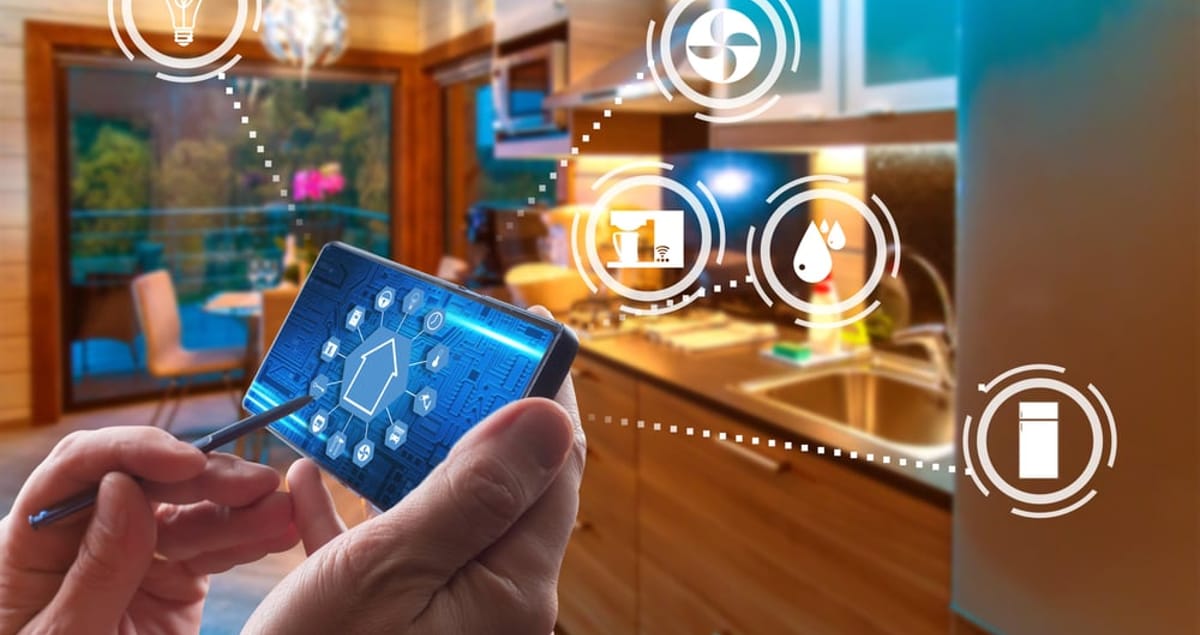Smart home technology has transformed the way we live, making our homes more efficient, secure, and comfortable. This revolutionary technology encompasses a wide array of devices and systems that integrate seamlessly to enhance our daily lives. From controlling lighting and temperature to ensuring home security and managing household chores, smart home technology is paving the way for a more connected and convenient lifestyle.

The Evolution of Smart Home Technology
Early Beginnings
The concept of a smart home dates back to the early 20th century, with the introduction of basic home automation devices. Early innovations included programmable thermostats and simple remote-controlled appliances. However, it wasn’t until the advent of the internet and wireless communication that smart home technology truly began to flourish.
Modern Advancements
Today, smart home technology has evolved into a sophisticated network of interconnected devices. Advances in artificial intelligence (AI), machine learning, and the Internet of Things (IoT) have propelled smart homes into the mainstream. These technologies enable devices to communicate with each other and with users, offering unprecedented control and automation.
Enhancing Home Security
Smart Security Systems
One of the most significant benefits of smart home technology is enhanced security. Smart security systems include features such as surveillance cameras, motion sensors, and smart locks. These devices can be monitored and controlled remotely via smartphones, providing homeowners with real-time alerts and peace of mind.
Video Doorbells
Video doorbells are a popular addition to smart home security. Equipped with high-definition cameras and two-way audio, these devices allow homeowners to see and communicate with visitors at their door, even when they are not home. Video doorbells can also record footage, which can be invaluable for security purposes.
Improving Energy Efficiency
Smart Thermostats
Smart thermostats are a game-changer in energy management. These devices learn homeowners’ habits and preferences, adjusting the temperature automatically to optimize comfort and energy savings. By using sensors and AI algorithms, smart thermostats can significantly reduce energy consumption and lower utility bills.
Smart Lighting
Smart lighting systems offer both convenience and energy efficiency. With the ability to control lighting remotely, set schedules, and adjust brightness levels, homeowners can reduce energy usage without sacrificing comfort. Some smart lighting systems even include motion sensors, ensuring lights are only on when needed.
Convenience and Comfort
Voice Assistants
Voice assistants, such as Amazon Alexa, Google Assistant, and Apple Siri, have become central to smart home ecosystems. These AI-powered devices allow users to control various smart home devices using simple voice commands. Whether it’s playing music, setting reminders, or adjusting the thermostat, voice assistants add a new level of convenience to daily living.
Smart Appliances
Smart appliances, including refrigerators, washing machines, and ovens, are designed to make household chores easier and more efficient. These appliances can be controlled remotely, provide notifications when maintenance is required, and even offer personalized settings based on usage patterns. For example, a smart refrigerator can monitor its contents and suggest recipes based on available ingredients.
Entertainment and Connectivity
Home Entertainment Systems
Smart home technology has revolutionized home entertainment. Smart TVs, sound systems, and streaming devices offer seamless integration and control. Users can stream their favorite shows, movies, and music with ease, often using voice commands or smartphone apps. Smart home entertainment systems also support multi-room audio, creating an immersive experience throughout the home.
Mesh Wi-Fi Networks
Reliable and fast internet connectivity is crucial for smart home devices. Mesh Wi-Fi networks provide comprehensive coverage, eliminating dead zones and ensuring all devices remain connected. These networks are designed to handle the increased demand for bandwidth that comes with numerous smart devices operating simultaneously.
Health and Wellness
Smart Health Devices
Smart home technology extends to health and wellness with devices like smart scales, blood pressure monitors, and sleep trackers. These devices provide users with real-time health data, helping them make informed decisions about their well-being. Integration with smartphones and health apps allows for easy tracking and analysis of health metrics.
Air Quality Monitors
Indoor air quality has a significant impact on health. Smart air quality monitors detect pollutants, allergens, and humidity levels, providing alerts and recommendations to improve indoor air. Some systems can automatically adjust air purifiers or humidifiers to maintain optimal air quality.
The Future of Smart Home Technology
Integration and Interoperability
The future of smart home technology lies in greater integration and interoperability. As more devices become interconnected, the need for standardized protocols and seamless communication will grow. Efforts like the Matter standard aim to address these challenges, ensuring that devices from different manufacturers can work together harmoniously.
AI and Machine Learning
Artificial intelligence and machine learning will continue to play a pivotal role in advancing smart home technology. These technologies will enable devices to learn from user behavior, anticipate needs, and provide personalized experiences. For example, smart home systems could automatically adjust settings based on the time of day, weather conditions, and user preferences.
Conclusion
Smart home technology is revolutionizing the way we live, offering unparalleled convenience, security, and efficiency. From enhancing home security and energy management to improving entertainment and health, smart home devices are becoming integral to modern living. As technology continues to advance, the possibilities for smart home innovation are limitless. Embracing these technologies can transform homes into intelligent, responsive environments that cater to our every need, paving the way for a smarter, more connected future.